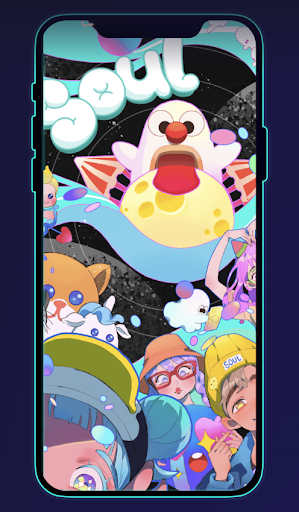Previously, a social networking app called Soul App rose in the market and soon captured the heart of Gen Z with its innovative social mode. Since its debut in 2016, SOUL has grown to be a platform that includes over 9.3 million daily active users. In a recent interview, Zhang Lu, founder and CEO of Soul App, revealed her idea of developing SOUL.
The success of SOUL is essentially related to three factors, her insights into the unsatisfied social needs in this age, her vision into the trend of online social networking, and her structured thinking. The first two allowed her to discover an opportunity in the red ocean of online social networking, while the latter allowed her to draw a blueprint that brings the voice of SOUL to its target audiences.
“SOUL is a gamified social networking platform where people feel the real happiness of socializing. They connect with each other and support each other.”
Zhang Lu defined SOUL as a gamified social networking platform. In this platform, people are able to exchange quality communication with each other with a virtual identity and enjoy gamified social experiences. They may feel it safe to see SOUL as a reliable place to express their true self and enjoy the natural attraction of socializing. According to Zhang Lu, initiating a conversation with someone is like talking to a traveler you meet when camping. In these situations, you motivate yourself out of pure interest rather than external factors like appearance or social standing.
Zhang Lu incubated the idea of interest profiling and developed with her team SOUL’s interest-based recommendation algorithm to lead its users to like-minded friends. In SOUL, users get a renewed interest profile that exhibits every touch of their social portraits. This feature is not limited to fostering real or close relationships but can be extended to build new relationships as well as to maintain existing ones.
What’s more, Zhang Lu managed to build SOUL as a decentralized platform where everyone is granted a relatively even social weight. The deep structure of SOUL is based on two aspects, decentralized content square and instant messaging. When users publish a post in SOUL, it will subsequently be recommended to people who are interested in similar content. They can later interact with each other by sending comments or sending private messages. The two features complete the closed loop of communication. Eventually, users gain a sense of belonging and happiness from intimate connections.
“In the virtual networking space of SOUL, people get a real sense of identity and belonging. These are also the underlying needs of socializing in the real world.”
Technology is a variable in developing social products. So do changes in cross-generational social relations. Zhang Lu observed that previously, people related to each other through offline contacts, while now, many parts of real life are migrating to the virtual world. She believes that the undertone of social connections remains the same whether it is in the virtual world or the real world. According to Zhang Lu, she aimed to design SOUL as a social networking platform that caters to the deep-rooted social needs of normal people.
“Is the purpose of human socialization really so singular?” Zhang Lu asked during the interview. She believes that the world is diverse, and everyone thinks differently. Homogenization is a trend of human society for the greatest good. Diversity is consequently sacrificed in real life. However, in SOUL, each person is recognized as an independent individual, whether he or she is an elite in finance, a delivery person, or a college student. People from all walks of life constitute the whole ecology of SOUL. They are the main forces that cultivate the platform and harvest a sense of belonging.
“Metaverse is not defined by VR devices or games. It is a concept and common sense. SOUL metaverse is a new kind of social network.”
Previously, SOUL disclosed its new mission, to create a social metaverse for Gen Z. Zhang Lu shared her understanding of the metaverse and where SOUL would head in the social metaverse. She believes that the metaverse does not necessarily have to be a virtual 3D world. Instead, it can be a decentralized social space, an economic cycle, and a platform with gamified features. In the social metaverse, everyone can design their personalized avatars, own virtual assets, and enjoy an immersive social ecosystem.
Zhang Lu thinks that the social metaverse tells the core value of SOUL. SOUL is characterized by gamified interaction, AI-recommendation algorithm, and SOUL engine and these constitute its framework. Zhang Lu feels that it is SOUL’s mission to create a virtual world online, where contacting and connecting with other people can be different from those in reality, but they share the same sense of belonging. And this coincides with the attributes of the metaverse.Social connections, as an eternal proposition in societies, are constantly changing in the course of time. Located in an age of the Internet, we are embracing a new era of online social networking and enjoying the novel social experiences it brings to us. Zhang Lu, as a precursor in the new age, is drawing a blueprint for both SOUL and everyone in its social metaverse.
Also Read: Why Is Debt To Equity Ratio Ideal.



